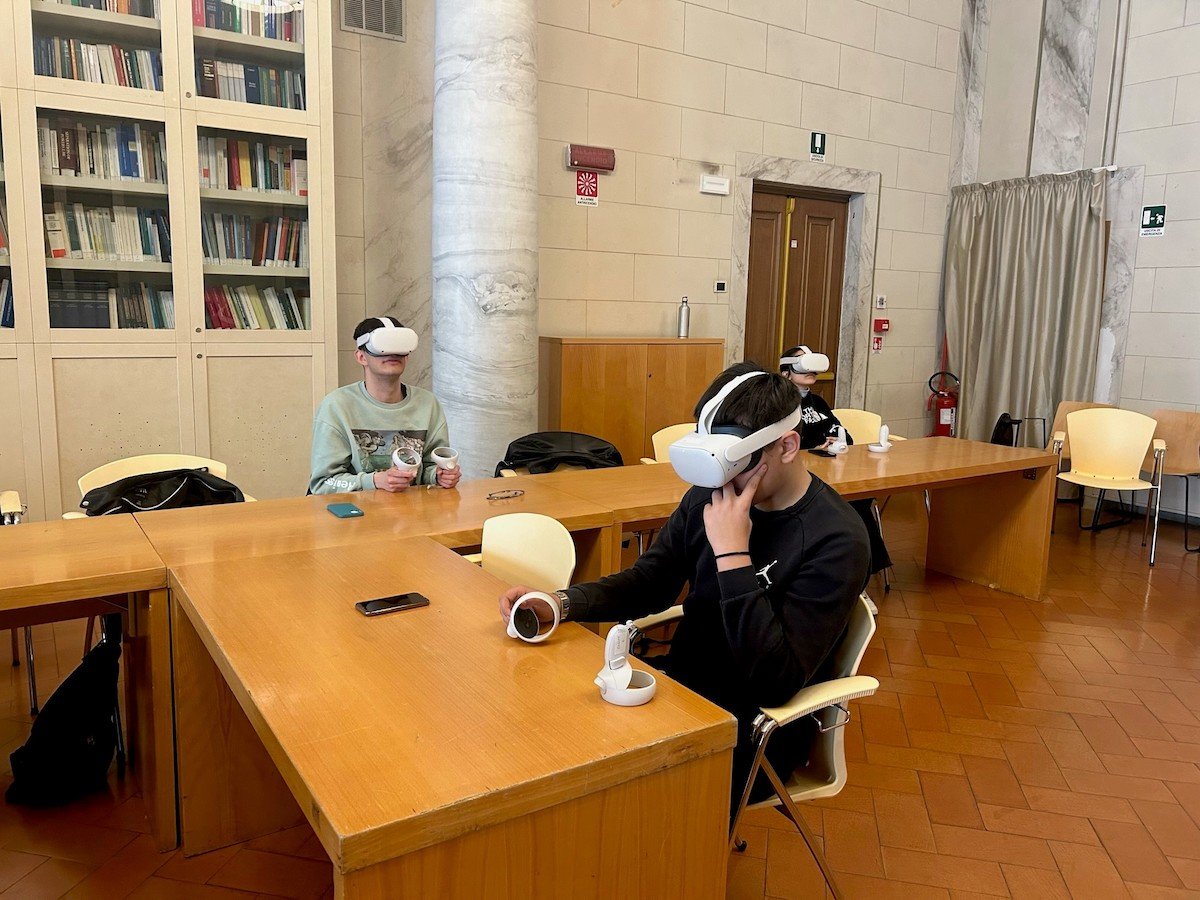There augmented reality to fight gender-based violence and discrimination, to create awareness and sensitivity and to break down toxic models of masculinity, turning men and boys into allies: this is the aim of the project Motorwhich stands for “Engaging men and boys against gender-based violence and discrimination through technology-based educational trainings” and is coordinated by Sant’Anna Lyceum of Pisa and created with ARTES 4.0 – Competence Center and Listening Center for Maltreating Men.
Engine is co-funded by the European Union as a winner of the CERV-DAPHNE call and is coordinated by Anna Loretoni, professor of political philosophy at the Scuola Superiore Sant’Anna, and involvesDirpolis InstituteL’Institute for Machine Intelligence andInstitute of Managementt. Our goal is to help they promote nonviolent models of masculinity, educating boys and men to recognize violence and act as positive role models for others, shifting the focus from victims of violence, who are too often marginalized in the media narrative, to a culture in which perpetrators of violence are highlighted. To do this, the program uses technology: with augmented reality viewer and joystickboys and men can also immerse themselves in a reality in which they are targeted inappropriate comments and catsor in which they are forced to justify their competence and professionalism – at work or in the field of study – in the face of comments about their physical appearance.
“This European project is particularly targeted young men and studentsand wants to address the issue of gender-based violence – explains Anna Loretoni – Virtual reality is used in the educational programs, which was planned and developed together with colleagues from the Institute of Machine Intelligence to give the participants the experience identification with situations of violence and discrimination».
High school students, college students and their teachers and professors, as well as young athletes participating in sports clubs together with their coaches and sports directors participate in the educational activities. The courses are designed by an interdisciplinary panel of scholars and experts in the social and applied sciences, who take advantage of immersive virtual reality to address physical, emotional and social aspects are associated with direct and indirect experiences of gender-based violence. On the 29th and 30th of March, the students of the Santoni Institute in Pisa got to experience it first hand, and in April it was the turn of Sant’Anna students and teachers.

